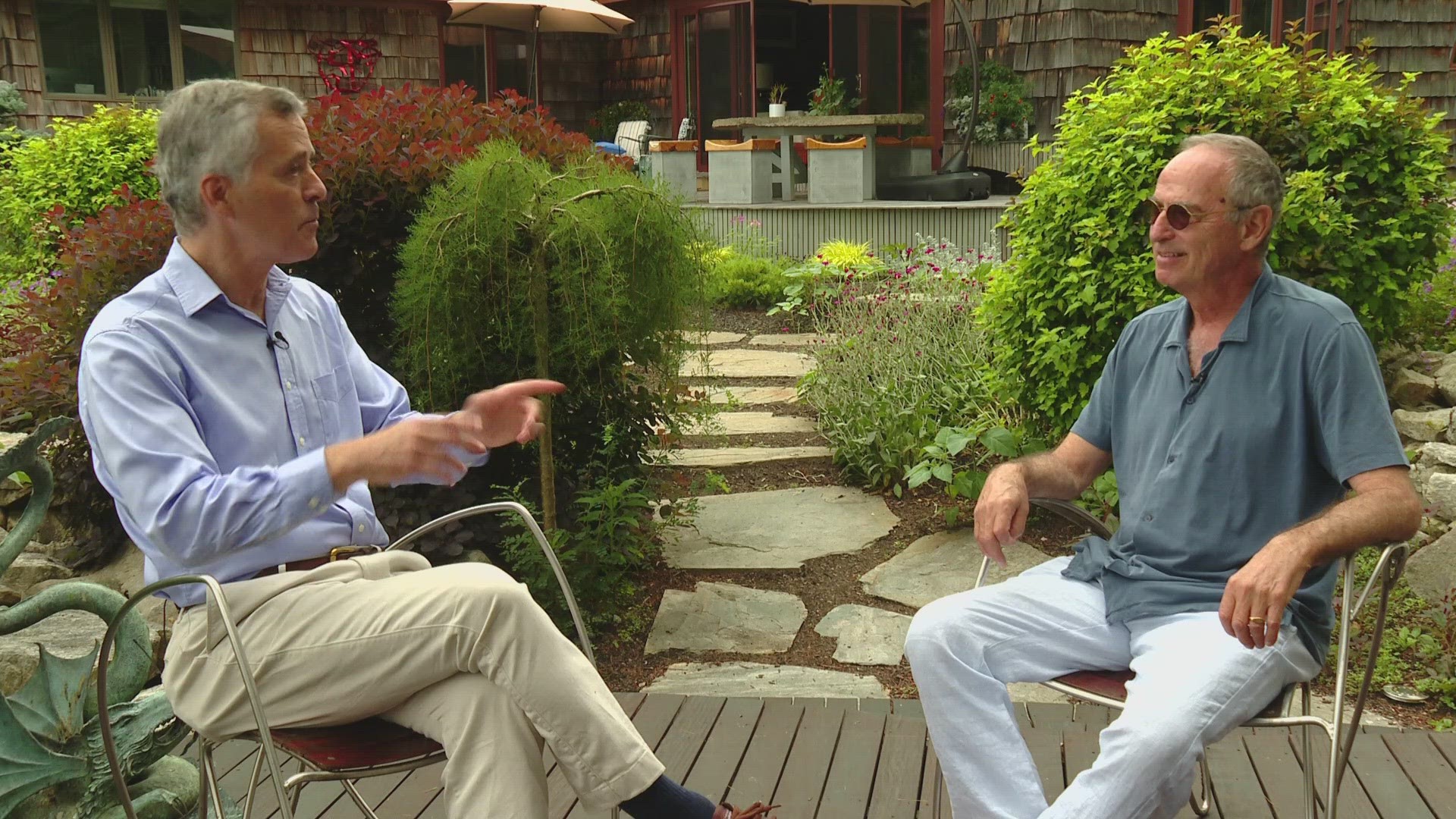FREEPORT, Maine — Editor's note: The first part of our 207 interview with Martin Fletcher will air on Aug. 8. The second part will air on Aug. 9.
At the feeding station in Mogadishu, the war-ravaged capital of Somalia, mornings began with parents taking the bodies of their dead children to a cemetery. Death was everywhere. Starvation killed a dozen people a day.
The reporter covering the story for NBC News was veteran foreign correspondent Martin Fletcher.
"It was hard to see," he wrote. "For we had no help to give to the mothers who looked at us with beseeching eyes."
As Fletcher walked through the feeding station, jotting notes to himself for the story he would write, a boy who was about six years old began to follow him. Although clearly suffering from starvation, with a distended belly and only patches of hair on his head, the boy kept "a respectful distance" and refused Fletcher’s offers of water, a granola bar, and a sandwich.
Eventually, Fletcher asked a guide what the boy wanted.
"He wants your pencil," the interpreter said.
"My pencil? That’s all? But I’ve only got one," Fletcher replied.
The guide spoke harshly to the boy, who ran away "throwing one last beaten glance over his shoulder as he disappeared among the starving and the sick," Fletcher wrote.
“That experience has haunted me ever since. Why didn’t I give him my pencil? What, I couldn’t find another one? But in the moment, trying to record the drama around me, and with only one pencil, I didn’t see any farther than my notebook."
This is one of many powerful portraits Fletcher sketches in his book, “Teachers—The Ones I Can’t Forget,” a collection of stories about “the ordinary people he met on the worst day of their lives.” He came to Maine recently to appear at Freeport Speech, a program that brings speakers to Freeport to talk about a wide variety of topics. Fletcher discussed his book and the people whose perseverance and resilience inspired him during his years as a foreign correspondent, most of them with NBC News at its bureau in Tel Aviv, Israel.
In his career, Fletcher often found himself covering humanity at its worst, from suicide bombings in the Middle East (he witnessed the bloody aftermath of dozens of them) to the genocide in Rwanda that left 800,000 people dead in just 100 days. The work left him with what he calls “scratches on his soul.” Still, he considers himself luckier than nearly all of his colleagues.
“Every foreign correspondent I know is divorced. I’m not divorced,” Fletcher told me. “They’re all drinking. I don’t do any of that stuff. Don’t drink, no drugs, nothing. Never did.”
Having a family helped keep him grounded. When he returned from covering some disaster, his wife would often meet him at the door, hand him a baby, and say, “Oh, you’re home. Your turn.”
Part 1
Part 2
Fletcher is now retired from reporting, although he still coaches NBC reporters on how to tell memorable stories. Does he miss the action, the adrenaline rush?
“Yes and no,” he said.
He doesn’t miss the endless travel; he figures he spent sixteen years of his life living out of hotels.
More important, having lost 10 friends who died covering stories overseas, he doesn’t miss the danger.
“That’s one of the two key reasons why I left NBC,” he said. “I felt my luck was running out. I mean, how long can you be lucky for? You can’t always be lucky.”
Also, because Fletcher did not want to make money from other people’s pain, he is now donating the profits from “Teachers: The Ones I Can’t Forget” to Artolution, which he describes as “a charity that supports refugees, not by providing food or clothing but by feeding their souls.”
You can learn more about Artolution here.

